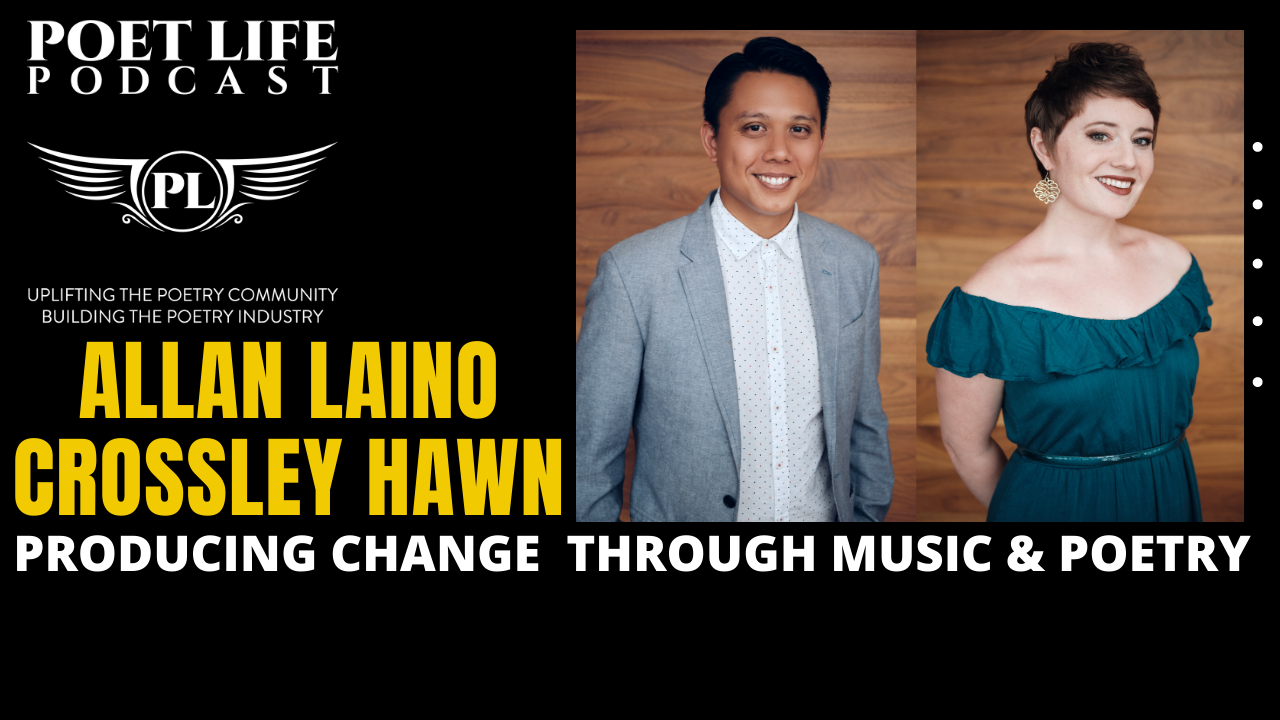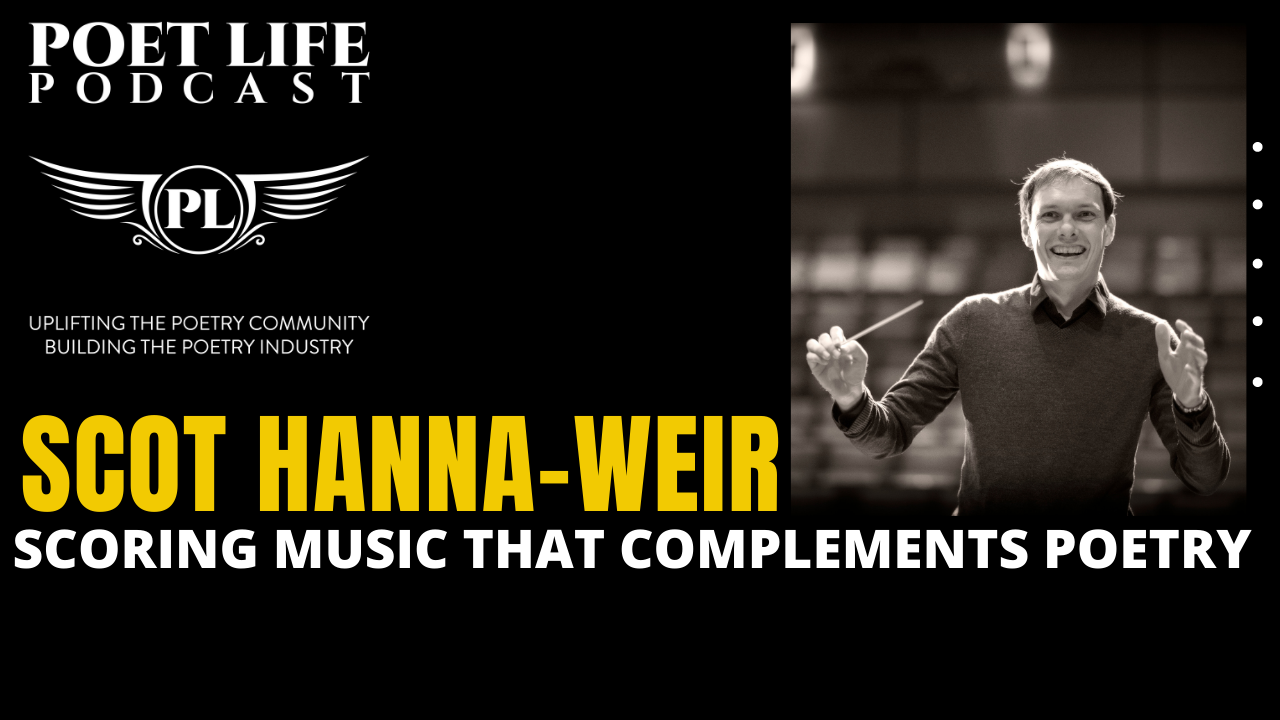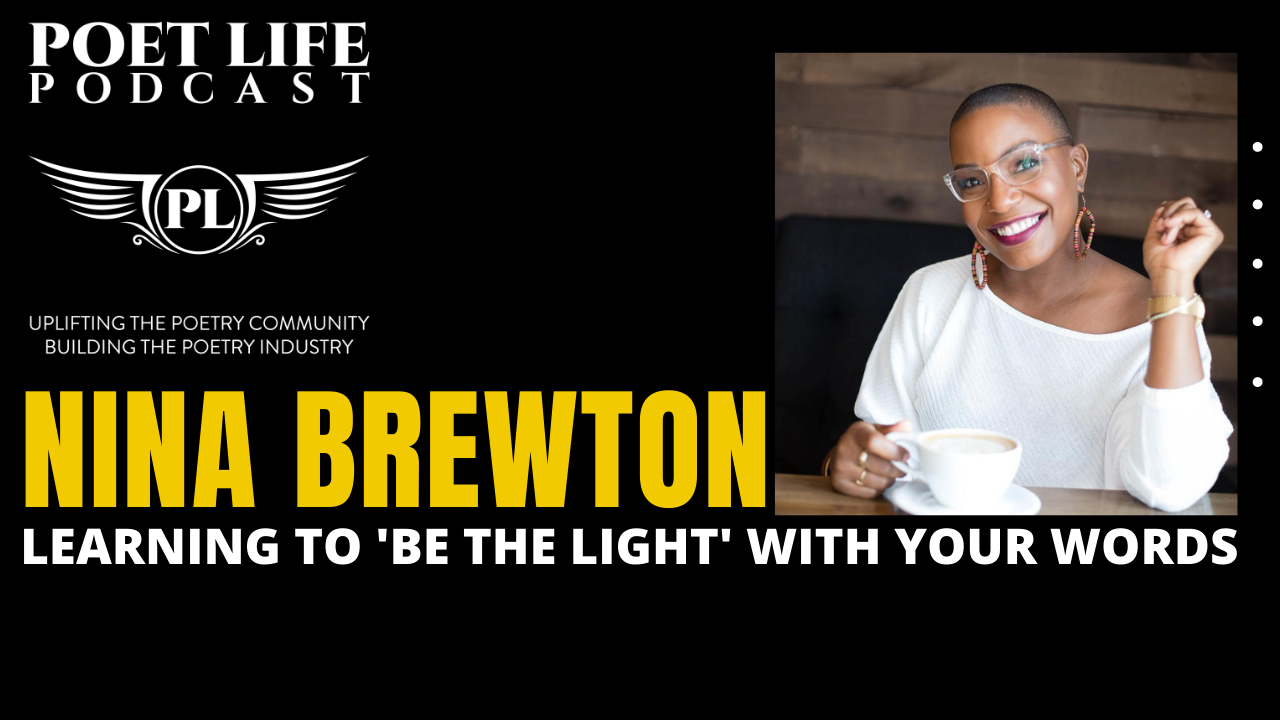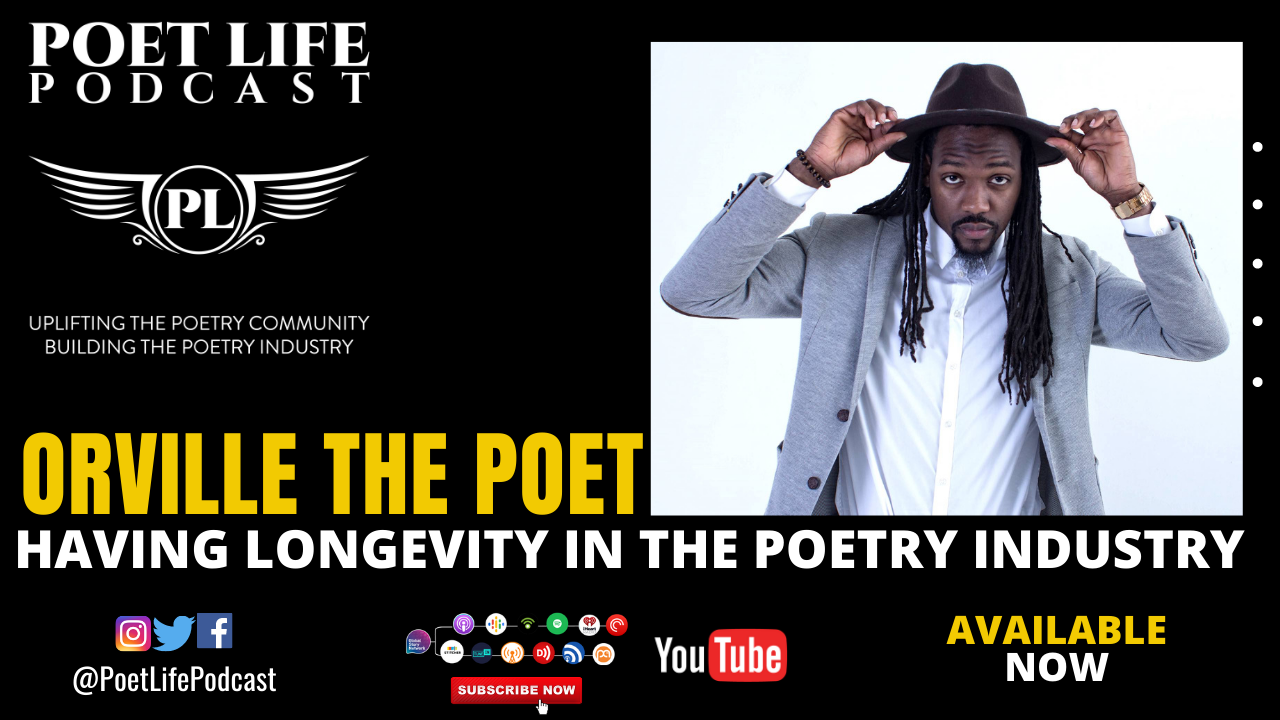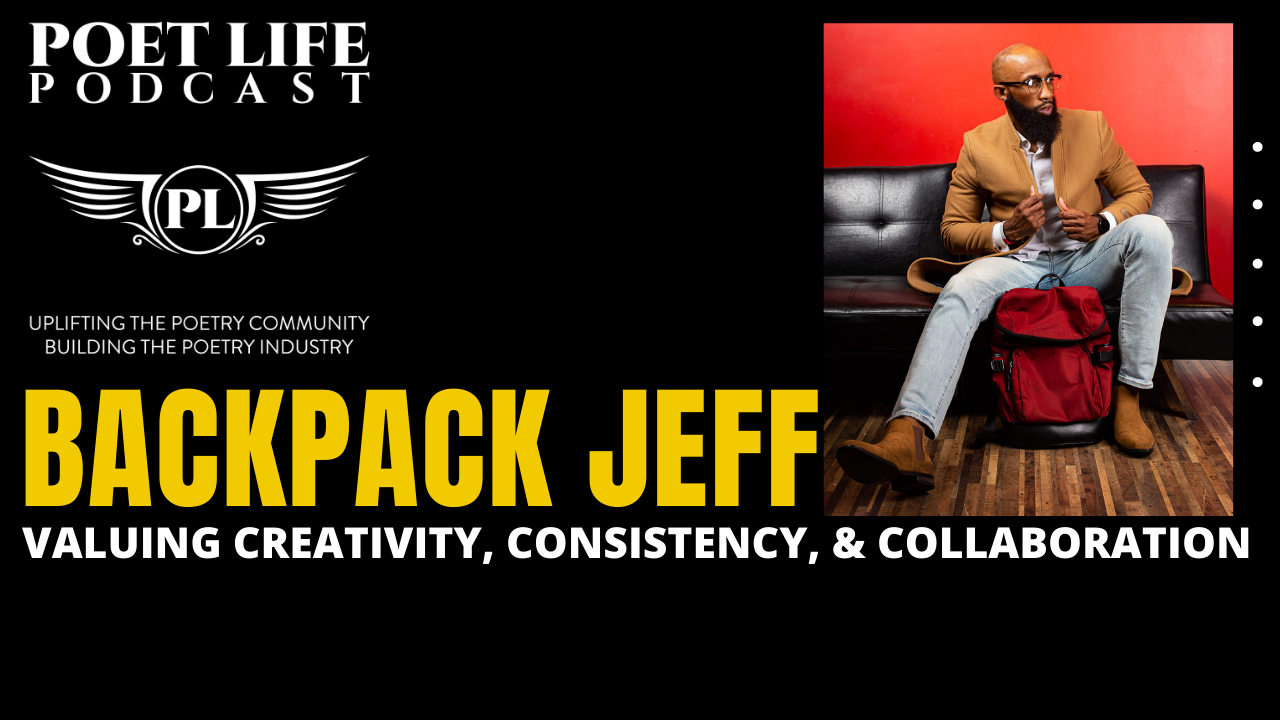Producing Change Through Poetry, Music, and Film
Let’s look behind the screen of a spoken word film. We spoke with Allan Laino and Crossley Hawn who are members of Bridge Voices and produced the spoken word film, “America, You’re Beautiful.” We wanted to know why they were drawn to this project and what all went into producing this film.
Recently, we’ve talked with Nina Brewton about starring in a spoken word film and with Scot Hanna-Weir about what goes into scoring music for the film.
Now, let’s look behind the screen.
We spoke with Allan Laino and Crossley Hawn who are members of Bridge Voices and produced the spoken word film, “America, You’re Beautiful.” We wanted to know why they were drawn to this project and what all went into producing this film.
Let’s learn, shall we?
Why this project and why with The Poet Life?
Crossley Hawn: It was shortly after the murder of George Floyd. We sat back and wanted to let what was happening wash over us and not immediately respond, but instead create a space for listening.
We wanted to listen, and of course we wanted to contribute. We gave it some time, and we all talked and decided to give an entire platform to a person of color.
Allan Laino: Our very last live performance was a partnership with The Poet Life in January 2020, and that performance was incredible the way it came together. We were just so moved by the way music and poetry came together for that performance.
So we thought The Poet Life might be the ones to help us out here. We didn't know exactly what we wanted to do, but we knew that we had a really effective and inspiring partnership.
Throughout the project, we learned that the passion and the kind of heart that we poured into this is what we want all of our projects to be built on. We've always been trying to engage with issues of our time. It's part of our mission to use music and our voices to examine what is happening around us.
Crossley: This sort of solidified our mission to create art for a bigger purpose.
Allan: We’re not going to undo centuries of systemic racism with a seven-minute video. But we can inspire conversations and concrete actions.
What’s the process for producing a spoken word film?
First, be sure to listen to the full episode to get their full explanations and lessons learned first-hand.
Next, let’s dive into the overview of what all went into producing “America, You’re Beautiful” according to Crossley and Allan.
Everyone’s voices were recorded individually, and Allan layered the voices together to create the quintet we hear in the film.
Working with the recording of Nina’s poem and the musical score, Crossley and Allan had a few days of “intense storyboarding” and creating a spreadsheet to track where everyone would be for every minute of the filming day.
Now, in a normal film, the order is usually: conceptualizing, storyboarding, scripting, filming, composing, recording, editing.
But this is no “normal” film.
They started with the poem (script) because that would be the focus of the film, and everything else supports the poem. Then they had the composition, followed by storyboarding, filming, editing.
“It was really fun work because we had such great material from the poem to the performance to the music to the visuals. It was about letting them complement one another.” – Allan Laino
Let’s continue:
The locations and visuals were led by “the poem first and then logistic realities.”
The first visual was inspired by the music because it felt like a morning glow, which then set the idea that the poem would take place through the course of a day.
“It was easy to integrate the sound world of the piece and the text of the poem in our storyboarding. Everything works together so well that it was easy to be inspired by both things.” – Crossley Hawn
After mapping out the locations, the location scout woke up early one day to walk the route and make sure all would work well at the times they would be filming.
After meeting with the videographer/director of photography, he had what was drafted so far for the poem and music as well as the storyboard to go off of. During the filming day, he really captured and framed the visuals beautifully.
Then comes the editing. Editing the video footage together, editing and finding all the historical B-roll footage, fine tuning, revising, and finalizing.
How did they know it was complete? We were curious too.
Crossley says, “For me, it was when nothing was bothering me anymore.”
Pretty sound gut feeling right there.
Advice for aspiring video editors
We’ll leave you with this piece of advice Allan has for aspiring video editors:
“Organization is key. I didn’t watch every second of every video file. I could skim through it. First thing I did was categorize the videos and label it by look and feel because we knew the tone of the visual was our goal to match the tone of the poetry.”
He continues to say, “From there, I was trying things out. Finding the special moments that come through in video that stand out then picking the highlights and finding the best place for them.”
Head over to wherever you stream podcasts to watch or listen to the full episode now! There’s much more to learn from these two.
And be sure to watch “America, You’re Beautiful” on AYBFilm.com or on Bridge Voices’ YouTube channel.
Scoring Music That Complements Poetry
We sat down with Scot Hanna-Weir, the composer for the film, to learn what goes into scoring music for a spoken word film.
Take it from us, Scot is inspiring poets to connect with musicians and not just to put a track behind one of their poems but to actually get a composition behind it and create something that’s totally different.
Previously, we talked with Nina Brewton about her poetry for the spoken word film, “America, You’re Beautiful.” Something else that goes into creating a spoken word film is the music score. We sat down with Scot Hanna-Weir, the composer for the film, to learn what goes into scoring music for a spoken word film.
Take it from us, Scot is inspiring poets to connect with musicians and not just to put a track behind one of their poems but to actually get a composition behind it and create something that’s totally different.
Let’s hear what Scot had to say about his experience scoring this spoken word film, shall we?
Poet Life Podcast: How did you get involved in the “America, You’re Beautiful” film?
Scot Hanna-Weir: Over the summer, during the protests after George Floyd was killed, Bridge did some thinking. I asked them, “Do you really want the white guy to be the composer for this?”
They were telling me they wanted to work with a Black spoken word artist and give them a lot of freedom to say what they want to say, and Bridge would be the supportive voices for that.
I was like, “Sign me up.”
It was such a gift to be able to have a role that is supportive and important but secondary to really center Nina’s voice and to make that the point.
Poet Life Podcast: What was your role in the spoken word film?
Scot Hanna-Weir: My role for the film was to create the music that the voices in Bridge ended up singing. That was the underscoring for bringing Nina’s words to life.
I never scored poetry like that before. It’s not like I don’t work with words and poets, but usually someone who writes for choir will find a poem that’s already written. We don’t often get to collaborate with a poet to bring something to life that’s new.
Beyond that, usually once the poet gives us the words, their part is done. We typically look at the poem and try to get in the head of the poet and figure out how we bring these words to life. This was totally different because Nina was right there, and we weren’t ever singing the words that she wrote.
With this, we weren’t trying to reinterpret the words. We were just trying to give it even more body and hit on more senses.
Poet Life Podcast: What was the process for scoring poetry?
Scot Hanna-Weir: Going through the process, Nina would record a bit and then I would go sketch out ideas. I was listening to her recording a bunch and looking at the words, trying to pull the pacing, emotion, content from what she was doing in terms of her delivery and the words.
Then I was trying to make music that supported the calm and reflective moments as well as these more aggressive and in-your-face moments. Looking to see if there was a sadness in this or an anger in it. Then I would record what I wrote.
In the first meeting, Nina had a sketch and said she was really thinking about Ray Charles’ version of “America The Beautiful.” The first thing I went to was finding a way to sample that.
But that wasn’t Bridge’s version of the music, and that’s an inspiration of Nina’s but she didn’t write another verse to it; it was a jumping off point. So I messed around with the theme and made it more of a riff on it, and that’s what Nina was doing in her poem. She has inflection points that are, “America, you’re beautiful.”
So I tried to tie it back to the song in those moments. Then I just fill in the in between moments.
It’s so much better to have that moment of creating together. I was writing the music for the previous section, and Nina would come back with a new section. We went back and forth in terms of how that evolved.
Fundamentally, the poem inspired the music because that was the source of everything we were doing. But there was a flow of ideas and creativity, which was great.
Not all composers would be willing to work in the kind of situation where you don’t really know what the poem is going to be about before you start on the project, but how else are you going to get the real message?
We were horrified by the events that have happened in this country, and we can’t fully imagine how you are feeling about it. We would like to hear what you have to say.
Poet Life Podcast: How often do you, as a composer, work with poets?
Scot Hanna-Weir: In choral music, we deal with poetry all the time. Almost all of our music is based on poems. Maybe more if it is based on Emily Dickinson than needs to be.
We can have a broader base of poetry when we look at it. It’s one of the fundamental parts of our textbook. The focus is the music that we sing.
I ask my students: “What does this poem mean? What does this poem make you feel? What do you think the author was trying to say? How do you think the composer brought that to life in the music?”
They have so few skills usually to be able to have that kind of conversation. I don’t know if that’s because poetry can feel impenetrable.
But poetry deals with such topics that I think can sometimes be overwhelming, which is a part of the human experience. Poetry and music get at the core of that.
Not everyone is taking the creative writing and literature classes. I don’t think poetry just has to be for the people who are English majors.
Poet Life Podcast: How do poetry and music mesh?
Scot Hanna-Weir: Music and poetry together is a one-two punch for people. It connects people with your emotions in a way that a lot of other forms of learning and expression don’t do in the same kind of way.
That’s the power of art: to not just go to the place where we feel the end result, but to give us a trajectory that lands you there.
A poem and/or a piece of music can have an arc and takes you on a journey that a lot of other things can’t.Then when you add the film, it’s so much more immersive.
Poet Life Podcast: What message would you want to leave with the people?
Scot Hanna-Weir: Don’t underestimate the platform you have as an artist. It’s not about reaching a certain number of people, but it can be about reaching that one person who needed to hear that.
Definitely go listen to or watch the full episode with Scot. There’s so much more to his experience that we can all learn from.
Scot Hanna-Weir is an Assistant Professor of Music and Director of Choral Activities at Santa Clara University, and Artistic Director of the Santa Clara Chorale. He is recognized for his innovative programming, his fluency with technology in performance, and his engagement with issues of equity and social justice. In addition to regularly commissioning and premiering new works, he is also an active composer and arranger himself. Learn all about Scot at scothw.com
Learning to ‘Be The Light’ With Your Words
Nina Brewton is an example of how our stories don’t always go the way we want, but they go the way they’re supposed to. And she has a story that’s all too familiar and with a happy continuation.
“If you are on this Earth, you are important, period. My poet life didn’t show up the way I expected it to, and I stepped away from it altogether. But you find your way.” — Nina Brewton
If you take nothing else from this, take that first quote with you.
You are important
Your poet life may not show up the way you expect it to
But you find your way
Nina Brewton is an example of how our stories don’t always go the way we want, but they go the way they’re supposed to. And she has a story that’s all too familiar and with a happy continuation.
Nina is a writer, host, performance artist, social mentor, and benefit fundraiser. And from her school days and the Air Force to the page and the stage, she’s got a story worth sharing and one we can all learn from.
Finding your voice
It can be easy to get imposter syndrome as a writer, especially as a poet trying to make this a career.
It’s even easier to pigeon hole yourself into one style or topic.
Nina says, “A lot of times we get caught up in, ‘Well, this is my style. This is what I do. This is what I write.’ And there’s other times where, as a black woman in America, we have the words and the feelings, but there are so many that we become paralyzed.”
When you take the opportunity to write about something you know or have thoughts on, even if it’s not your regular content, you grow as a writer and open more doors for you. Variety goes a long way.
It’s also important to know what your voice is within your work.
Nina shares this story from her experience:
“Sometimes we’ll work with people, and you find that somewhere in the process your voice has been lost through editing — through self editing and literal editing. My first book left me discouraged. … Unfortunately, my editor was a high-brow writer, very by-the-book as far as grammar is concerned and sentences.
“So a couple months after the book was released, I was doing readings and was stumbling over the words. It occurred to me that I don’t sound like this. I wouldn’t say the line like that, that’s not how I wrote it. Instead of rewriting and republishing, I backed away from the whole thing.
“I didn’t trust my writing. I didn’t trust my voice. I didn’t trust that I was smart enough. I’ve done all of this, been to all these places, but I have no degrees, so one would want to hear from me. No one would want to listen to me. They don’t want me to teach your children. I got into this cycle of telling myself all these lies.
“I’m glad to say that this project and the ones that have come during and after it have really reignited my love for writing all over again.
Experience the project that helped Nina re-fall in love with writing: “America, You’re Beautiful”
Finding your place
Sometimes, the community and support system isn’t readily available to everyone.
Nina says, “There was no one to direct me and say ‘This is the way a writer should go.’ Unfortunately, people in my generation were often encouraged to go to school, get a job, drive it ‘til the wheels fall off. And I was trying to find my way creatively. That community was non-existent to me.”
What do you do if that community doesn’t exist for you? You search for them. Because your people are out there. Especially in today’s world where the poetry community is ready to welcome us through a screen.
“Find people who can encourage you and lift you up in your work, in your desires, and in your practice.”
Nina continues, “Even though writing is something you do in solitude, you must find community to connect with because you’re not the only one.”
Having that community goes a long way in pushing you into your greatness, even when you don’t see it yourself.
And that greatness, is your light.
Finding your light
How do you find your light? Be you. It’s already in you. And you have the ideas to support that light.
This is what Nina has learned:
“I’m learning to show up as my authentic self. I was told, ‘When you have an idea, act on it in 48 hours. That doesn’t mean you complete the thing, but act on it. Start to research it. Unpack the idea.’ So take a look at what the idea is and how you can move forward in the thing and lean into it.”
Leaning into an idea can be intimidating for sure. We can get wrapped up in self doubt or insecurities about how everyone else will react to what we create.
But Nina shuts that down with some sound advice:
“What we cannot do is assume what people might think about the work we do.”
Because we cannot control how others feel. But we can control how we feel about ourselves and our own work. You never know who is going to love what you do and who doesn’t. If someone doesn’t, it wasn’t meant for them, and that’s alright.
It’s good to hold yourself to a higher standard, but don’t hold yourself to an impossible standard. No one is perfect, but we can be the best versions of ourselves. That’s who we’re meant to be, and it’s already in us.
Nina says, “Find the light in your own life and step up to be the light in your world. So many of us get paralyzed with changing the world, but start with the shiny light in your three-foot radius. This is wherever you are, and we’ll change the world one step at a time.”
So let’s leave you with this one final thought from Nina’s experience:
“With all of these years and all of this experience I have as a writer and as a poet, and I’m over here hiding?”
You don’t have to hide from your poet life. You are important, and you have a story worth writing.
Listen to or watch Nina’s full episode to get even more golden advice, and be sure to watch “America, You’re Beautiful” to hear her impactful message to America.
Nina Brewton is a writer who speaks and a speaker who sings. She has lived a life consumed by clouds of darkness and overcame that darkness to find the perfect peace, walking in the Light that was always there. In all she does, she aspires to inspire others to not only acknowledge the peace, love and light are available to them but to walk in these three gifts, as they learn to become all that they were created to be. Light begets light and overcomes darkness effortlessly. She hopes to always encourage others to BE inspired as she is inspired.
7 Tips for Having Longevity In The Poetry Industry
Have you ever wondered what it takes to not only get started in the poetry industry, but to have a lasting career? Same here! Lucky for you, Poet Life Podcast sat down to pick the brain of a pro full of that good knowledge.
Have you ever wondered what it takes to not only get started in the poetry industry, but to have a lasting career? Same here!
Lucky for you, Poet Life Podcast sat down to pick the brain of a pro full of that good knowledge.
Orville The Poet is a poet, host, brand ambassador, influencer, philanthropist, and much more. With his experiences, he’s picked up a ton of information that he’s sharing with all of us for creating a lasting career in the poetry industry.
All of the below are direct quotes from Orville The Poet (or slightly rewritten to fit the page instead of an off-the-cuff conversation) from season 3, episode 8 of the Poet Life Podcast.
1. It can’t just be a hobby
Hosting an open mic can’t just be a hobby. You have to actually really want to have one. Because if you’re just doing it for applause, you will fail.
I went to open mics and studied how it worked. What worked, what didn’t work. I was studying people who have their own open mic, or I would go and study the hosts. I would think, “This works well, this didn’t work well. I wish they had talked about this. This is cool. What would I say here?”
I was a sponge and took notes for two years. It took two years before I shared anything at an open mic. You’ve got to be a student and know what works for you. There’s a lot that we do differently now in 2020 that we didn’t do in 2013, 2014 or even 2019.
We learn, grow, make a mistake, and are not scared to fail. You can take risks, and you get the biggest rewards. Don’t be a fool, either. If you can only afford to take calculated risks, then make calculated risks.
You have to have a different level of sincerity for it. You have to really have a reverence for what it is you aspire to be.
At some point in your journey, you’re going to have to go back and look at who’s come before you to have any sort of longevity. Whatever art form you’re in or lane you’re in, you’re going to have to do that at some point. Imagine me doing poetry and not knowing who Maya Angelou is.
2. Have a plan before expectations
Expectations almost caused me to stop. You can have expectations when you’ve implemented a plan. If you haven’t implemented a plan and you're expecting things, you’re going to expect a lot of hurt and to be disappointed.
3. Assess your situation, honestly
Go look at your social media from when you first started to now. You might surprise yourself.
If you’re an artist and you want to build and get to the next level, you have to honestly, objectively, and genuinely look at where you are. What do you do best? Be honest with yourself. You may need your sound counsel around you — those people you really trust. Your squad that can tell you your stuff smells today, and you won’t be upset.
In order to actually make those moves, you need to get to that place. You have to be able to appropriately assess where you actually are. Sometimes humility can cripple your trajectory. If you are really good, but you think you suck, you’re degenerating yourself.
But if you think you should make a small step but really should be taking a plane, you could be crippling yourself. Unless you effectively assess where you are. So go to your counsel and ask what you do well and what you don’t.
4. Be disciplined and know what discipline looks like for you
It’s going to take a while of you consistently showing up for yourself for [your friends and family] to believe this is what you are actually about.
You should have a crazy work ethic. You better be writing. I have easily 60 poems that no one’s ever heard. They date back to 2009 and some as new as quarantine.
Do I write every day? Nope. I write when I’m inspired and sometimes it fizzles out. I don’t force it. I tried that one time and it was the worst experience ever.
5. Know that it’s not going to be profitable all the time
There were many nights where I went home in the negative. I was not making anything, paying out of my own pocket. Many nights where the next check I was going to get was already gone because I made a commitment.
6. Inspire yourself
I stopped. I stopped for years. I tried to leave it alone. I couldn’t. Sometimes you have to inspire yourself, push yourself, be your own locomotion.
Be your own self motivator. Because if you wait for other people to do it, who knows how long you’ll be waiting.
7. Don’t wait
Tomorrow isn’t promised. What are you doing waiting for tomorrow?
Look, these are just the highlights to the conversation that Orville The Poet had with Poet Life Podcast. Get even deeper in this discussion by listening to this episode anywhere you stream podcasts or watch it on YouTube. Trust us, you’ll want even more of this gold.
Orville is more than a poet or more than a host, he’s a philanthropist, educator, brand ambassador, and influencer. With his motto, “sharing my heART through this ART”, Orville is using his mother’s spirit as his strength and bringing people closer through his words. Discover all there is to know about Orville at orvillethepoet.com
Valuing Creativity, Consistency, & Collaboration
How exactly does a former insurance salesman become a successful poet and motivational speaker? Jeff Young, aka Backpack Jeff, can break it down into three C’s for you: Creativity, Consistency, Collaboration.
How exactly does a former insurance salesman become a successful poet and motivational speaker? Jeff Young, aka Backpack Jeff, can break it down into three C’s for you.
But who is Backpack Jeff and why should you take his word for it? Jeff is an East Coast-based motivational speaker, poet, conflict resolutionist, and now podcast host traveling and touching the lives of others through words.
So what is it that you can learn from Jeff to apply to your own poetry career?
Let’s find out and dive into Jeff’s three C’s: Creativity, Consistency, Collaboration.
Creativity gets you started in your poetry career
Writing and working on your craft is the foundation. Allowing yourself to be creative in how you approach writing poetry and presenting it is what gets your career started.
One of the fun parts? Getting caught up in your poetry.
Jeff agrees, “There’s nothing more beautiful than watching a person operate in their craft.”
Think about it. What are some of the most memorable poetry performances you’ve seen or heard? What are some of the most beautiful little moments you’ve witnessed of someone else? What are the moments you feel your most fulfilled? Probably when you or that person is focused on the thing they love the most.
So do your best to let yourself keep creating. If you stop writing or practicing or whatever it is, then you might be keeping yourself from the next opportunity that might come your way.
Living proof? Jeff.
“If you continue to work on your craft, you have no idea what’s around the corner.”
What a perfect transition into his next C: Consistency.
Consistency gets you noticed in the poetry industry
You may hear it all the time. Consistency is key. Consistency, consistency, consistency. Right? But why? How? What will consistency in poetry actually get me? Well, Jeff has a few things to say about that.
“Everything I did was about being consistent. Always have my pen to the pad. The biggest way you can make a name for yourself is being consistent.”
After a while of being consistent, people start to recognize you. Then people start talking about you to other people (e.g., “Have you heard this poet?”).
Think about what you see in TV shows — like Marvelous Mrs. Maisel, Midge doesn’t start to pick up momentum in comedy until she’s been consistently showing up to the mic. This is a theme you’ll see in lots of movies, TV shows, and real life because it’s true.
Consistency gets you noticed and recognized.
Take Jeff’s personal example of how he learned about consistency:
“I learned that consistency was key, not from poetry, but from other parts of my life. When I played sports, I wasn’t as consistent as I could’ve been or should’ve been. Because of that, I was a good average player. As I was getting into motivational speaking, I heard it in my mind because I played it so much. I spent a year and a half playing nothing but inspirational videos.”
“I already know what giving up feels like. I want to know what happens if I don’t.”
“I’m already giving half effort. I want to know and see what happens if I approach something with maximum effort, maximum potential. What’s going to happen? A result of that was nationals my first year.”
Easier said than done, right?
How do you stay consistent?
Great question!
Jeff says, “What kept me consistent was opportunities and wanting to get more in touch with myself and my story.”
Ride the opportunities that come your way and let them keep you consistent in your craft. The opportunities or misadventures or what-have-you that come your way throughout life are all opportunities that can keep you writing. Let yourself embrace those moments — whether that includes gigs, workshops, classes, jobs, personal life events.
In addition to that? Continually making your presence known in the poetry industry and community.
According to Jeff’s experience, “You’ve got to be consistent. You’ve got to be out there. You’ve got to make sure that people are finding out who you are. And you’ve got to make sure you are building a following for yourself. You’ve got to make sure you’re doing all these things and staying consistent.”
How many times can we say “consistent” in one blog post? Probably a few more.
So what does consistency get you?
It gets you steady growth and, ultimately, your goal. Rather than jumping to the part you want to be at, work to get there. You’ve probably heard the saying “slow and steady wins the race,” right? Well, it’s the truth.
Maybe Jeff’s analogy will help: Imagine you’re driving cross country in the dark by focusing on just what’s 200 feet in front of you.
“All you have to do is tackle what’s in front of you. Don’t worry about what’s to come because you’re not there yet. Consistency is tackling this 200 feet and then the next 200 feet and the next until you ultimately reach your destination.”
So what about the final C? Collaboration?
Collaboration gets you a poetry team
No, we don’t necessarily mean a slam team that you compete with. We mean a team of peers who are there to support you, challenge you, and become your network that can help get you opportunities.
From Jeff’s experience, “You have to be willing to work with people. … You’ve got to be putting yourself out there and be willing to have a conversation with people doing what it is you want to do.”
While collaborative poems are definitely valuable, they’re not the only form of collaboration for poets.
“Collaboration is also about having conversations with each other, supporting each other, teaching others how to get better, teaching others how to feature. I think collaboration is more along the lines of how can we all help each other hone in and develop and grow in our craft.”
It’s asking questions and helping each other think outside the poem. It’s helping each other think about the business behind what you’re doing — whether that’s performance, the page, hosting, teaching, whatever it is. It doesn’t have to be a competition.
Jeff says, “There’s more than enough space for all of us out here to operate. Because we don’t all define success in the same fashion. We can all win.”
The three C’s are great tools to keep in your mind as you work to move forward in your poetry career. Remember to keep your creativity flowing, remain consistent, and allow yourself to collaborate with your peers.
We’ll leave you with this one final thought from Backpack Jeff:
“Whatever it is that you’re doing, especially in this poetry thing, trust yourself.”
Be sure to watch or listen to the full episode to discover even more about Jeff’s story and how you can keep yourself creative, consistent, and collaborative.
Backpack Jeff is a poet and motivational speaker. His powerful speaking voice, clever wordplay, and breathtaking performance have allowed him to speak before crowds of over 300 people. Poetry is the catalyst that has allowed him to flourish in ways never thought possible. It has provided an outlet for him to reach people in a creative manner that has touched the lives of many. As a poet, Jeff encourages others to embrace their truth and live it to its full potential.


